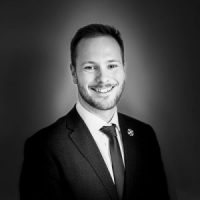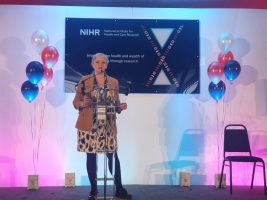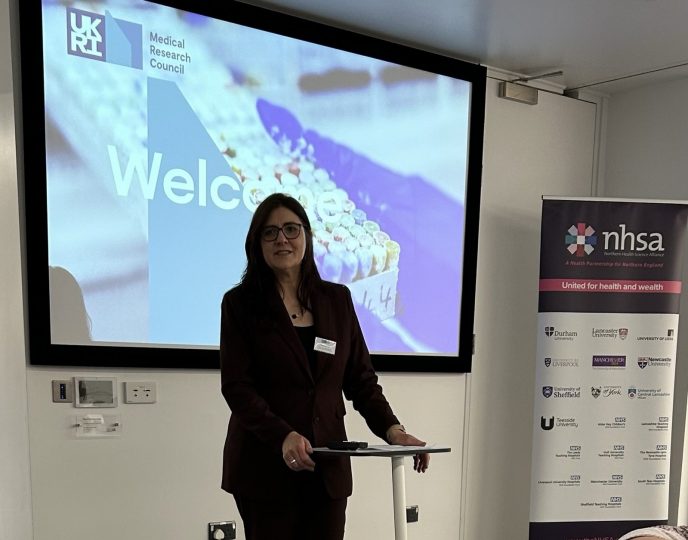
REFLECTIONS: Mobilising excellence – partnering with the Medical Research Council to inform health research opportunities in the North of England
Mandy reflects on the recent northern community visit with the Medical Research Council (MRC)
Earlier this month at the University of Leeds’ Nexus, in partnership with the UKRI Medical Research Council (MRC), the Northern Health Science Alliance helped to coordinate the MRC’s community visit event for the North of England. The two-day event brought together representatives from northern universities and NHS trusts with the MRC to exchange ideas and discuss issues affecting the medical research community.
Historically, the MRC would visit single organisations, but this year they adopted a broader partnership-led approach to collectively reach out to a wide range of stakeholders. They have been working with cluster organisations across the UK, such as the NHSA, to co-host their community visits and, needless to say, we were delighted to be asked to work with them on the northern visit.
The event provided an opportunity to promote the excellence within health research in the North, as well as offer attendees the chance to gain insight into the MRC’s vision and speak directly to members of its senior team. Perceived access to funders can be something of a ‘chicken and egg’ situation – the more funding organisations receive, they tend to have more contact and opportunities to approach the funders. One of the things that made this particular event so important was that this barrier was removed, and a fully equitable approach was taken for all attendees.
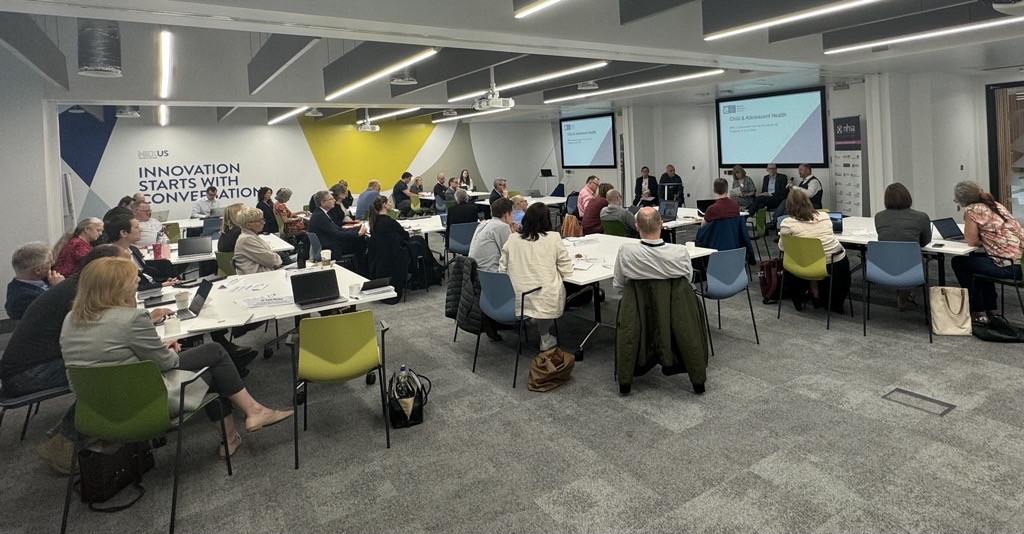
Day one
I had the pleasure of speaking at the event opening and highlighted three relevant features of the North:
- Health inequalities: April marked the first year of operation of the NHSA’s Health Equity North, whose research has clearly evidenced the stark regional inequalities that affect people living in the North. With this in mind, we need more research to be led by the North, with the associated benefits to our patients.
- The historical imbalance of health research investment in the North: As the NHSA recently reported, health research funding is disproportionately lower in the North, and it’s important to explore why this is and how it can be addressed.
- The North as a collaborative health and life sciences supercluster: As a health and life sciences community, we are world leading in research. However, as a geographically dispersed region, we need to work together at scale across the North to shift the dial on investments coming into our region and to fully compliment the Golden Triangle. The NHSA already brings the northern research community together across our programmes and there is potential for investing in this further to create a more balanced ecosystem across the UK.
In summary, although we have world leading, excellent researchers in the North, we have historically been underfunded in terms of research and research infrastructure. Evidence suggests that compared to our Southern counterparts, our funding bids are very high quality, but tend to be lower in both value and volume. These issues may be addressed by the further investment and development of soft and hard infrastructure to correct the balance and support our researchers to come together at a northern level to build consortia for producing higher numbers of larger funding applications. Whilst we know excellence exists, it needs to be supported to mobilise at a stronger collective level, and meeting with the MRC as a region was an important step in this direction.
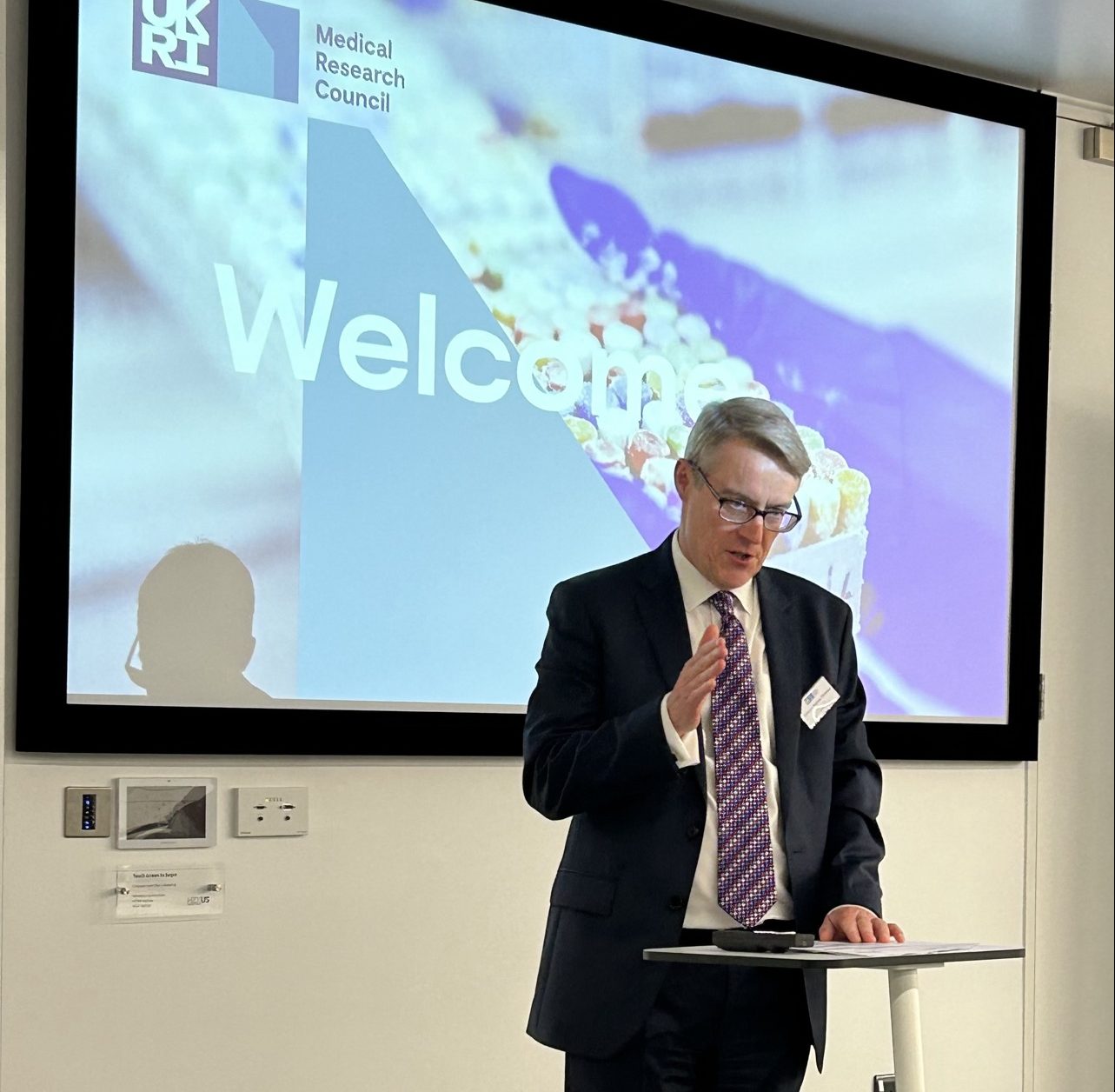
Professor Patrick Chinnery (pictured above), Executive Chair at MRC, Dr Jonathan Pearce (Director of Strategy and Planning, MRC) and Dr Joanna Robinson (Associate Director, Training and Careers, MRC) presented their strategic updates and led a discussion about a focus on new biomedical discoveries, earlier diagnosis, advanced therapies, precision prevention, infrastructure and technologies to tackle specific research questions and long-term commitment to underpinning science. There was a significant focus on prevention, which lends itself to many of our NHSA programmes and networks. MRC representatives also discussed the importance of skills, training and careers. One area repeatedly highlighted was around the importance of developing more clinical academics and the challenges that come with that. Advancing in our sector is not just about research but also about skills, career development and building capability.
It was clear that the MRC was in ‘listening mode’ to feed into their spending review, and a highlight for me was hearing from the senior team directly about MRC priorities and forthcoming funding opportunities. You can view the the MRC slides from Day 1 here.
It was great to be given the opportunity to deep-dive into discussions we perhaps otherwise wouldn’t have the opportunity to speak about, and I know I join attendees in saying this gave both our members and the MRC food for thought in how we can holistically advance health research and innovation in the North of England.
Day two
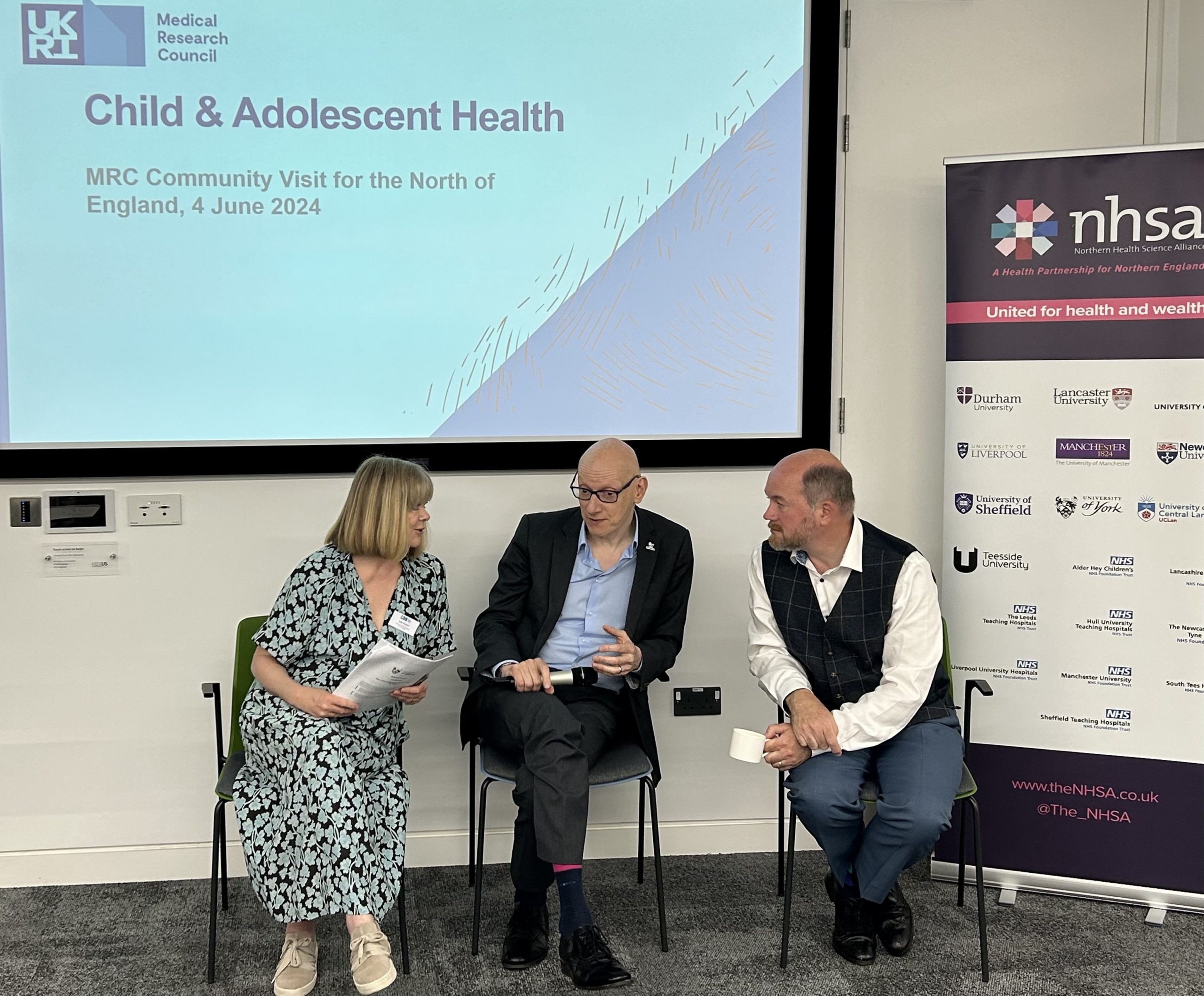
The second day focussed on showcasing two areas of strength we have in the North in terms of research and advocacy, with experts from our member organisations leading two sessions.
Professor Kate Pickett from the University of York, Professor Adam Glasner from the University of Leeds and Professor Calum Semple from Alder Hey Children’s Hospital, held a session on Child and Adolescent Health, chaired by Professor Neil Humphrey of the University of Manchester. The panel highlighted three case studies, which were set up to address child health inequalities – Child of the North, CHORAL Leeds and Born in Bradford. These projects have developed to become powerful research programmes, producing impactful reports, influencing decision makers and laying bare the stark realities too many children are facing when living in poverty. It is clear that the challenges faced by our children in the North are matched by the research capabilities of the North. Similarly, Alder Hey Children’s Hospital boasts an incredible 200 active research studies and remains one of the most successful recruiters in the region for NIHR studies. Being able to present these impactful examples is imperative when we want funders to recognise the excellent work happening in the North.

The second panel, chaired by Professor Andy Brass of the University of Manchester, brought together Professor Joanne Knight from Lancaster University and Dr Samuel Relton from the University of Leeds, who set out how they are working with industry and other partners to collect data to influence public health planning and outcomes. They demonstrated how their work – using health data to understand things such as who is going to have a serious fall or who needs to be seen by a neurologist – all feed into NHS and local council planning.
The two days were extremely valuable in presenting to the MRC what excellence looks like in the North and where the need for more funding lies. But what I feel really shone through from the event was the appetite for collaboration at scale and working as a critical mass. This is all the more important if we are to address the historic regional funding disparities through developing pan-regional large-scale bids. Our power lies in our research strengths, our collaborative approach and collective vision as a northern health and life sciences supercluster.
It was wonderful to share the true excellence we have here in the North. A key principle that underpins the work of the NHSA to its members is offering the continued routes to working together for a better North and I look forward to keeping up the momentum through further events such as this one.
Dr Mandy Dixon
Executive Lead for Corporate Engagement and Cluster Development


